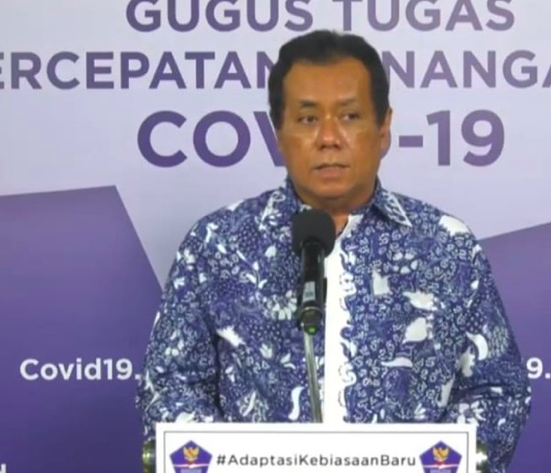UI Rector Outlines Concept of Economic Recovery 2020-2021
Delli Asterina ~ FEB UI Public Relations Officer
Jakarta – An online discussion series on Indonesia’s Economic Recovery was held on Friday, 3 July 2020 by the Indonesian School of Political Science and the Coordinating Ministry for Economic Affairs. Coordinating Minister for Economic Affairs Dr. Airlangga Hartarto, Universitas Indonesia (UI) Rector Prof. Ari Kuncoro, Ph.D, and Darmawan Prasodjo, Ph.D were invited as speakers at the series.
Airlangga explained three things that must be considered as an exit strategy. “Timeboxing is crucial to succeed in two areas: the economy bounces back and is safe from the virus. Preventing the spread of the virus by expanding the capacity for providing treatment and conducting testing, finding drugs and vaccines. This is followed by efforts to save the global economy, support for affected communities and businesses, reopen the economy when the pandemic eases, and accelerate economic recovery,” said Airlangga.
The International Monetary Fund (IMF) projected Indonesia’s economic growth at -0.3% by the end of 2020. However, in 2021, Indonesia’s economy is predicted to grow in the range of 6%, provided that economic activity has fully recovered.
Ari Kuncoro said that the government’s role is very important to help restore Indonesia’s economy through various policies. He also explained the concept of economic recovery in 2020 and 2021
Ari said that the government must increase demand to prevent a decline in people’s purchasing power. This can be done by providing social assistance, direct cash assistance (BLT), and supporting the Family of Hope Program (PKH). “On the fiscal side, economic recovery in 2020 aims at shifting demand upwards to prevent a decline in people’s purchasing power. We have social assistance and other forms of aid. In terms of banking policies, loan relaxation and other measures to strengthen the production side. Therefore, it is hoped that economic growth will not be negative. At the very least we can minimize the impacts of recession and move the economy to the right-hand side,” he said.
Meanwhile, to restore the economy in 2021, the government must not only restore but increase growth. He argues that investment and banking policies can make the economy shift to the right or grow.
“Well, for 2021, what needs to be done is not only to restore but to increase growth. This calls for investment. This means banking policies, for example, cooperation between BI and the OJK, which can make the economy shift to the right (positive) instead of to the left (negative),” he said.
Meanwhile, Darmawan Prasodjo, author of the book Jokowi Mewujudkan Mimpi Indonesia (Jokowi, Realizing Indonesia’s Dream), said that five years of working with Jokowi helped him understand Jokowi’s desire to develop Indonesia. According to him, infrastructure development can increase Indonesia’s economic growth. He cited as an example the Trans Sumatra toll road, which will increase the economic activity of the people living near the toll road, particularly those residing near the toll plazas.
“Connectivity, namely the infrastructure built by Pak Jokowi, has succeeded in increasing economic growth. And we identify this based on the growth in demand, “he said.
According to Darmawan, the Trans Sumatra toll road was built not only to solve the problem of congestion but also to increase productivity, mobility and open up isolated areas.
“The Trans Sumatra toll road was built not to solve the problem of congestion but to open up isolated areas for investment,” he explained.
Through the book he is writing, he explains that Jokowi’s dreams are still strong even amid the COVID-19 pandemic that has hit Indonesia. “The dream (of building Indonesia) is even stronger amid COVID-19, it is still very clear that the impact is (still) positive,” he said. (hjtp)
Source: finance.detik.com
(lem)

